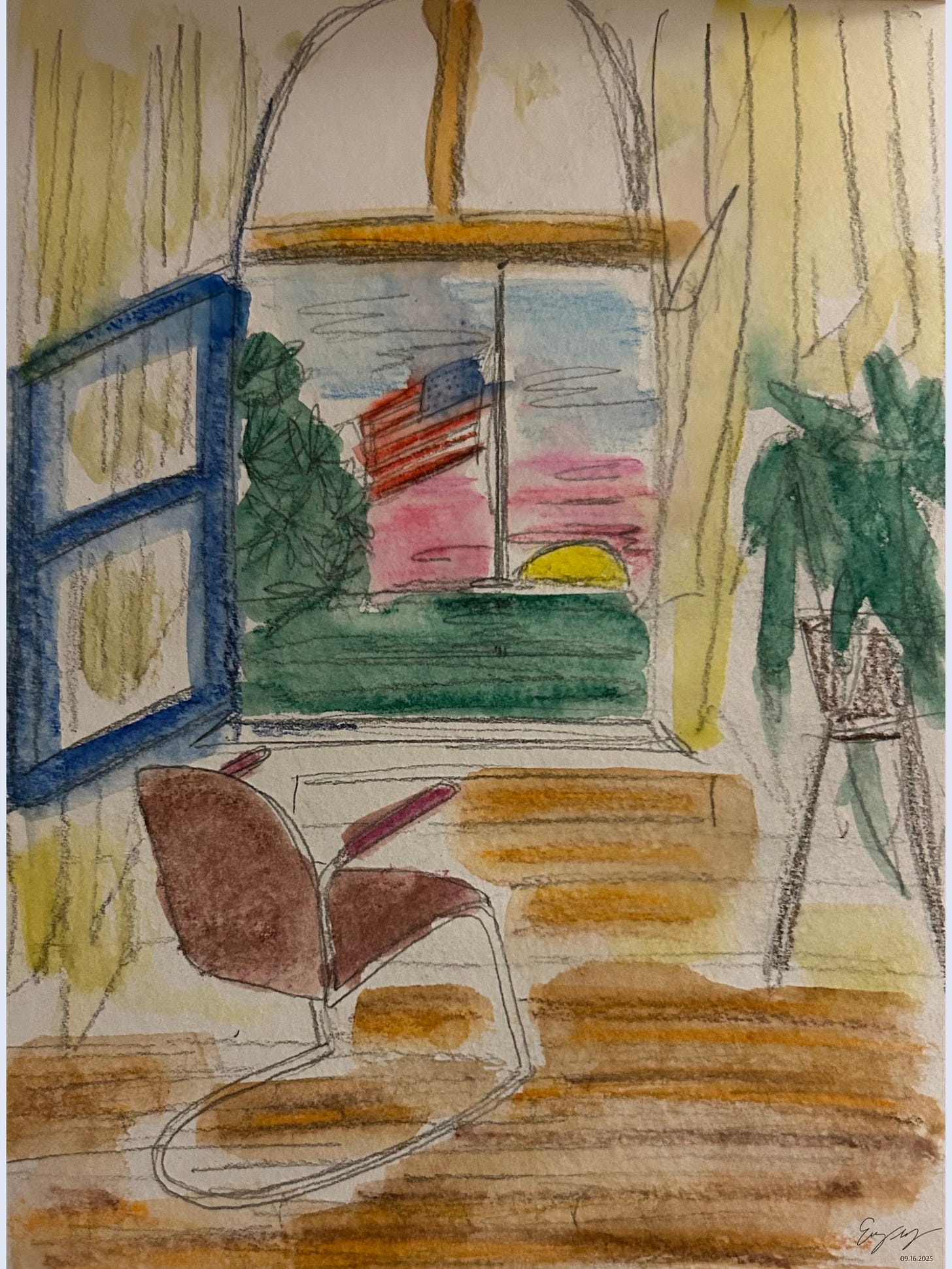We started Beyond Purpose with a simple belief: that service and community are the antidotes to burnout, division, and disconnection. That in the face of tragedy or triumph, the way forward isn’t just about purpose in the abstract, but about how we show up for one another in practice.
Last week underscored that belief in ways that were hard to ignore.
9/11 isn’t just a date on the calendar, it is a hinge point in modern history. For my generation, it reshaped what it meant to come of age in America. I still remember where I was that morning: sitting in Chemistry when we learned the first tower had been struck, then in AP Euro when the second tower fell. Later that day in English Lit, our teacher had us journal about how we felt. The feeling was trepidation, confusion, anxious, and worried. Sports were canceled. My synagogue held an impromptu service that evening. What had begun as an ordinary school day was suddenly anything but.
That day altered our sense of safety, reframed how we engaged with the world, and left marks that still ripple through our daily lives more than two decades later. Yet even amid the trauma, I also remember the way unity, compassion, and neighborliness broke through. Those qualities feel harder to hold onto today, but they remain just as essential.
Last week carried with it a heavy weight of news. A school shooting in Colorado shook parents and students alike, including my best friend, who had to pick up his daughter early from daycare as the city locked down. NATO airspace was violated in Poland, underscoring the tension at Europe’s edge. Israel attacked Hamas leaders in Qatar, straining an already volatile Middle East. Political unrest erupted in Kathmandu. And countless other injustices, large and small, reminded us of the turbulence of this moment in history.
And yet, in parallel, life offered glimpses of beauty and hope. I celebrated the birth of a friend’s baby, and the joyful news of another friend expecting. I watched startups in my orbit reach improbable milestones against long odds. I spent time on the National Mall, where a perfectly crisp autumn day reminded me that even in a season of uncertainty, there is still abundance and joy.
But this week also carried something different, the kind of news that drops into your stomach like a stone. The assassination of Charlie Kirk wasn’t just about one man or one set of political ideas. He was young, he mattered to millions, and he had built a platform that few accomplish at such an early age. I may not have shared his views and stances, but I respected his willingness to debate, to engage, and to exercise freedom of speech. His murder felt less like a partisan moment and more like a fracture in the democratic fabric we all rely on.
It left me with the same pit I have only felt a handful of times in my life: the Columbine shooting in the 90’s, when the towers fell on 9/11, when I lost my close friend Anthony and Patrick unexpectedly, as January 6th unfolded, and when October 7th nearly two years ago shocked the world. It is a feeling that tells you something bigger is at stake. That if we are not careful, mistrust will calcify, fear will metastasize, and neighbors will become enemies.
It is in moments like these, when retrenchment feels not only tempting but almost necessary for survival, that the harder choice becomes the most urgent one: to resist the pull inward, to refuse isolation, and instead to lean into community. To reach out. To show up. To get involved. Our humanity is not a pawn, and our future is not decided for us. It is ours to shape, together.
I still vividly remember the days and weeks following the 9/11 attack, when grief was undeniable but so was the connection. Neighbors became family. Strangers became allies. Compassion and courage outshone fear. That spirit of togetherness is not lost to history. It is still available to us, waiting for us in each moment we choose service over division, trust over suspicion, and generosity over fear.
The path forward will not come from slogans or soundbites. It will come from the quiet, everyday work of showing up for one another. We must continue to go to the gym, to class, to work, to protests, to sporting events, and political rallies. We look out for one another and we continue to debate and exchange ideas. That is the kind of service that once helped crystalize the power and passion of what it means to be American. And it is the kind of service we need to recover again.


